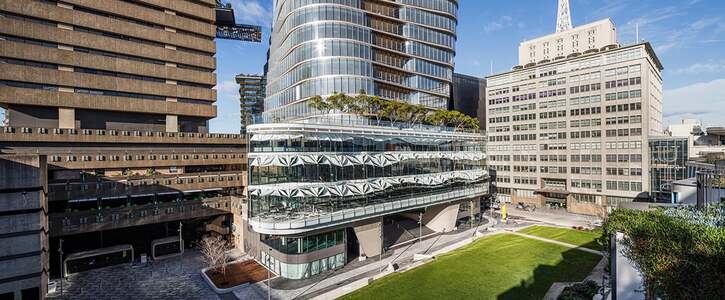100 signatures reached
To: Glen Babington (Chief Operating Officer and Vice-President, UTS)
Protect Freedom of Expression at UTS: Stop the Changes to the Campus Policy

We, the undersigned students, staff, and members of the UTS community, express our strong opposition to the proposed changes to the UTS Campus Policy that would introduce a blanket ban on indoor protests.
This policy change was raised in a recent meeting between UTS Security and UTSSA representatives, where it was stated the purpose of the ban is to “protect WHS for staff.” However, no consultation has taken place with key stakeholders, including the National Tertiary Education Union (NTEU) – the peak body representing UTS staff. If staff safety is the justification, it is essential that staff themselves and their representatives are included in these discussions.
This policy change was raised in a recent meeting between UTS Security and UTSSA representatives, where it was stated the purpose of the ban is to “protect WHS for staff.” However, no consultation has taken place with key stakeholders, including the National Tertiary Education Union (NTEU) – the peak body representing UTS staff. If staff safety is the justification, it is essential that staff themselves and their representatives are included in these discussions.
We call on UTS to:
- Abandon the proposed blanket ban on indoor protests.
- Commit to transparent consultation with student and staff representatives before changing protest-related policies.
- Continue regulating protests through site-specific risk assessments and open dialogue between students, staff and UTS Security.
Why is this important?
We reject the assumption that indoor protests are inherently unsafe. Staff and students have a long-standing record of cooperating with UTS to manage risks at protests, including ensuring access to buildings and emergency exits. A blanket ban is not a safety measure - it is an attempt to suppress dissent.
Universities are meant to be places of free inquiry, challenge, and robust debate. Political protest has always been part of that tradition. UTS has legal and ethical responsibilities to protect freedom of political expression under:
Universities are meant to be places of free inquiry, challenge, and robust debate. Political protest has always been part of that tradition. UTS has legal and ethical responsibilities to protect freedom of political expression under:
- The Higher Education Support Amendment (Freedom of Speech) Bill 2020
- The Enterprise Agreement between UTS staff and management
- Implied rights of political communication under the Australian Constitution
The current protest policy already allows UTS Security to manage risks appropriately. Clause 4.57, for example, enables the university to identify suitable spaces for demonstrations and implement safety plans. This balanced approach works. Replacing it with a prohibitive, one-size-fits-all ban threatens the ability of students and staff to protest openly and safely, and opens the door to arbitrary and punitive responses to any political expression inside university buildings.
Students and staff will continue to protest when injustice occurs. But driving protest underground, or creating vague restrictions, makes it more dangerous for everyone. Cooperation is the safer approach.
We stand for a UTS where safety and freedom of expression can coexist. We urge the university to work with, not against, the campus community to uphold these principles.
We stand for a UTS where safety and freedom of expression can coexist. We urge the university to work with, not against, the campus community to uphold these principles.

